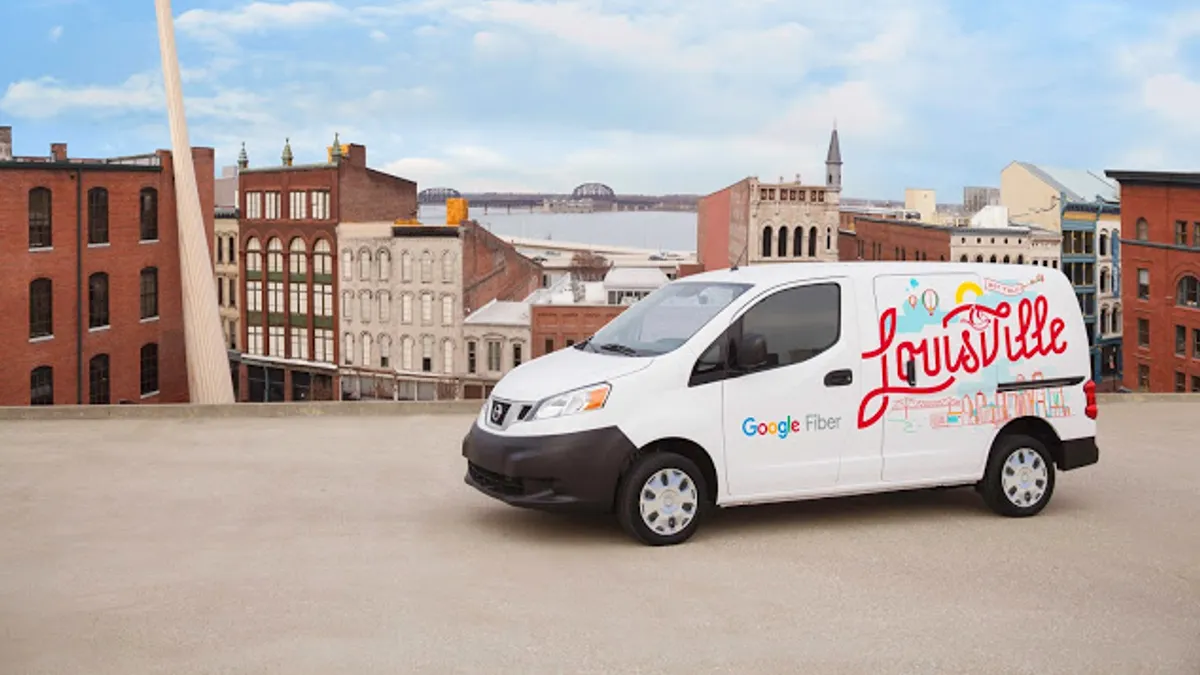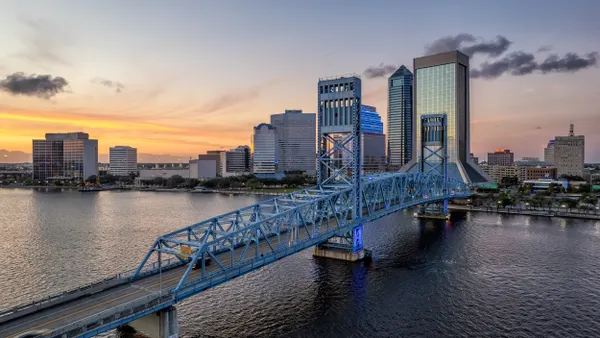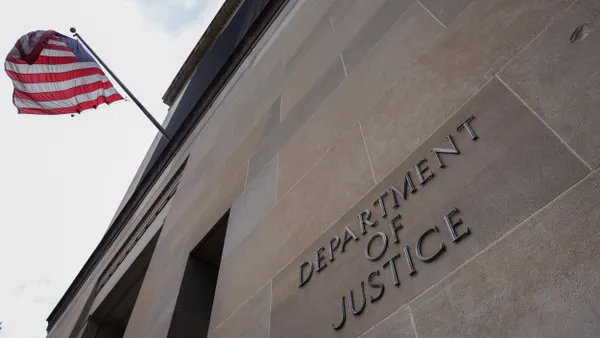Dive Brief:
- Google Fiber agreed to pay Louisville, KY $3.84 million after ceasing its broadband service in the city this week (following a February announcement of the departure). The money will be used to remove cable from roads, pave streets and remove above-ground infrastructure, according to an announcement from the city.
- The company had dug shallow trenches along streets to lay cable, but encountered technical problems with the new construction method. It must now remove that cable and repair the roads.
- Google Fiber will also make a $150,000 donation to the Community Foundation of Louisville’s Digital Inclusion Fund to support refurbishing used computers for low-income individuals and bring low-cost internet to public housing residents.
Dive Insight:
Google Fiber shocked Louisville in February with the announcement that it would leave the city, after promising to lay fiber that would support 1 gigabit per second (Gbps) internet at lower costs than traditional cable and internet providers. Monday marked the final day of service in Louisville, and Google Fiber provided two free months of service to allow subscribers to find a new option.
Google attributed the decision to technical issues with its fiber strategy, which involved digging two-inch-deep trenches to install cables, then filling them in with a solidifying, rubbery liquid. The installation was meant to cut the cost of laying fiber and get service out quicker, but residents reported that cables were popping out of the ground and complained about roads and lawns being torn up. Google has tried a similar technique in San Antonio and says “the lessons we’ve learned in Louisville have already made us better in our other Google Fiber cities.”
Google is clearly trying to ease the sting of its exit by picking up the bill for costly infrastructure repairs (in a statement, Louisville’s chief of civic innovation and technology Grace Simrall said infrastructure “will look as good or better than [it] did before the company began construction.”). But the departure still hurts Louisville, which has dealt with a pronounced digital divide and was hoping to offer more low-cost options. Google Fiber launched with fanfare in 2012, but has significantly scaled back its ambitions, including offering only wireless service in some cities.
As cities try to get the best broadband service to citizens, some are exploring their own municipal projects, following the lead of cities like Longmont, CO. Others have relied on private companies like Google Fiber. Going forward, the launch of 5G requires costly infrastructure installation, forcing cities to reach long-term deals with some providers. The Louisville incident could offer a note of caution about how to structure agreements to avoid pain if things go wrong.











